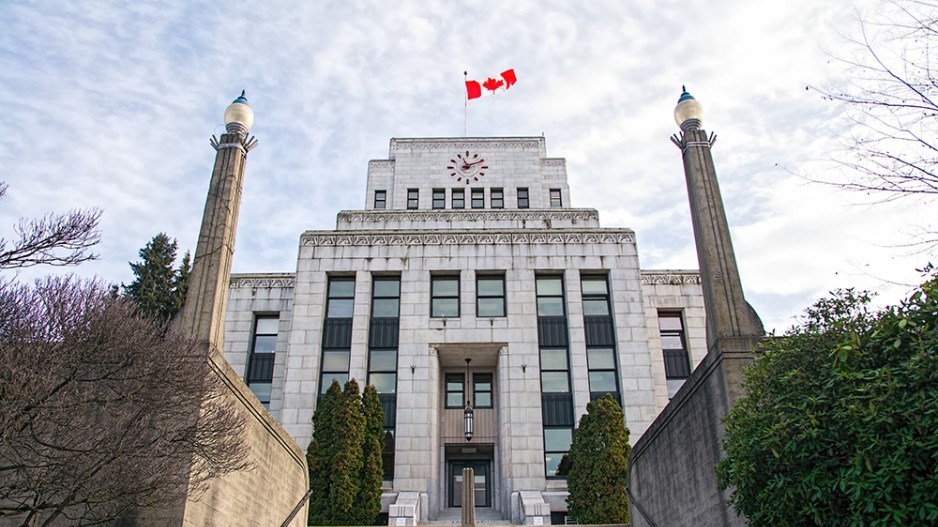In just four months, voters in British Columbia will take part in municipal elections. We have already learned that some incumbent mayors in Metro Â鶹´«Ã½Ó³» – such as Jonathan Cote in New Westminster and Jack Froese in the Township of Langley – are not running again.
We also know that some seasoned challengers have emerged in places like Â鶹´«Ã½Ó³»and Surrey.
For the past three and a half years, Research Co. and Glacier Media have studied issues related to governance in the City of Vancouver. This month, we re-asked some of these questions to residents who are likely to cast a ballot in this year’s municipal election. These responsible citizens, and not the eager complainers who achingly yearn for bias confirmation on social media, will define what our next government looks like.
In the first of two articles, we focus on four themes: amalgamation, zoning, public transportation and the Â鶹´«Ã½Ó³»Board of Parks and Recreation.
At this point, none of the main political parties assembled to nominate candidates for mayor and council in Â鶹´«Ã½Ó³»have openly advocated for the merger of Lower Mainland municipalities. This is usually a surprise for newcomers to Vancouver, who have seen Toronto and Montreal grow with the addition of adjacent areas and assume that the same scenario applies here.
In spite of the absence of a true pro-amalgamation platform, the perceptions of Â鶹´«Ã½Ó³»voters have shifted on the creation of a megacity that would house millions of residents. In 2018, only 34 per cent thought it would be worthwhile to explore the idea of amalgamating all of the municipalities in Metro Vancouver. In 2020, support grew to 46 per cent. This month, it stands at 51 per cent.
On this matter, we see a significant difference between Vancouverites who voted for the two top mayoral candidates in 2018. The concept of amalgamation is more appealing to those who supported Kennedy Stewart (67 per cent) than to those who backed Ken Sim (49 per cent). Of course, it remains to be seen what residents of other cities say about abandoning their own mayoralties and councils.
British Columbians continue to rank housing, homelessness and poverty as the most important issue facing the province, and zoning has been a major source of frustration for some residents. Close to three in five voters in Â鶹´«Ã½Ó³»(58 per cent) are in favour of changing zoning laws to allow property owners to build up to six strata title units on a standard lot, provided the new building is no taller than an average home.
This represents a five-point increase since we last asked this question in 2020.
As expected, there are some age differences when Â鶹´«Ã½Ó³»voters ponder rezoning. Just under half of those aged 55 and over (48 per cent) welcome the idea of six strata title units on a standard lot. The proportion is higher among those aged 35 to 54 (57 per cent) and aged 18 to 34 (63 per cent). In addition, majorities of voters who currently rent (65 per cent) or own (54 per cent) their primary residence are in favour of this blanket regulation.
On the transportation front, we see more than seven in 10 voters in Â鶹´«Ã½Ó³»(71 per cent, down 10 points since 2020) continuing to support the proposed extension of the SkyTrain Millennium Line (currently under construction to Arbutus) to the University of British Columbia (UBC) campus at Point Grey.
While a significant majority of Vancouverites continue to endorse this project, there are some regional nuances. Agreement with the SkyTrain extension is highest among voters who live downtown (75 per cent) and drops slightly among those who live on the East Side (72 per cent) and the West Side (67 per cent). This may be connected with the complexities of construction that have recently affected businesses and residents across Broadway.
Finally, we reach the thorny issue of the Â鶹´«Ã½Ó³»Board of Parks and Recreation. This organization has become a lightning rod for grievances, whether related to bike lanes, encampments or, most recently, when and how to cut grass.
Confidence in the Board of Parks and Recreation has eroded significantly. In 2020, only 44 per cent of Â鶹´«Ã½Ó³»voters were in favour of eliminating it and placing public parks and the public recreation system under the jurisdiction of city council. This month, the proportion has risen by eight points to 52 per cent.
On the future of the Board of Parks and Recreation, the difference is not political. Practically equal proportions of Stewart and Sim voters in 2018 (61 per cent and 60 per cent, respectively) think elimination is the right course of action. The crucial change is regional. Voters who live downtown are significantly more likely to endorse a city without this body (63 per cent) than their counterparts on the West Side (52 per cent) and the East Side (45 per cent).
Our survey shows that amalgamation is worth exploring for most Â鶹´«Ã½Ó³»voters.
The proposed SkyTrain to UBC remains popular, and support has grown for a review of zoning guidelines. However, openly advocating for the demise of the Board of Parks and Recreation has the potential to make mayoral candidates less popular on the East Side.
Mario Canseco is president of Research Co.
Results are based on an online study conducted from June 7 to June 9, 2022, among 400 municipal likely voters in the City of Vancouver. The data has been statistically weighted according to Canadian census figures for age, gender and region in the City of Vancouver. The margin of error – which measures sample variability – is plus or minus 4.9 percentage points, 19 times out of 20.



